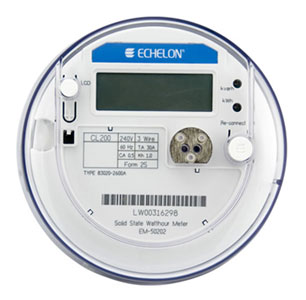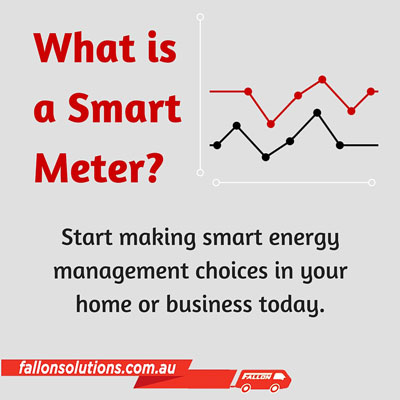5 September 2017
What is a smart meter?
A smart meter is an electricity meter that records how much power your household or business uses and when. This allows consumers to tweak power use more accurately to take advantage of lower-priced tariffs.
With the help of smart meters, electricity providers can price electricity to encourage off-peak usage which decreases costly peak demand pressures on the power grid. Reducing the need for network upgrades to cater for peak demand times on really hot or cold days.
Smart meters remotely send power usage information back to providers via the internet removing the need for a manual meter reading. This technology also allows electricity companies to balance power generation with power demand, as storage of power to cope with peak periods is difficult. Preparation for peak demand is a huge cost that ultimately gets passed onto the customer and may only be required for a few hours each year. Much of this expensive infrastructure is left idle most of the time.


Smart meters allow homes and businesses to make educated decisions about power consumption. Use at peak times and pay for the privilege or avoid large power use during these periods and reduce costs but deal with the inconvenience.
Another benefit of the new style of meters is accurate meter readings. For various reasons, your electricity provider may estimate your usage based on past billing periods. The installation of a smart meter means you only pay for what you use each quarter.
Smart meters also provide electricity companies with the ability to respond to power cuts faster, almost instantly connecting the power when customers move in and disconnecting when they move out.

Interval meters v smart meters
An interval meter electronically records your power usage every half hour and stores this information for collection by a meter reader. Interval meters allow customers to take advantage of time-of-use tariffs and off-peak electricity. As well as this functionality smart meters will send data to electricity providers via a WiFi connection enabling regular updates on your area’s power usage. Some smart systems allow the customer to monitor usage either online or with the help of a small electronic in-home display.
DRED enabled appliances
DRED appliances allow for grid management to reach another level. A DRED enabled appliance such as an air conditioner can respond to directions from power companies to reduce electricity demand at peak times, effectively remotely turning the AC down to avoid excessive pressure on the grid. More information on Peak Smart air conditioning.
Make smart energy management choices with a smart meter
Smart meters mean there are no surprises on the quarterly bill. They put the consumer in a position to become educated about how their household or business uses power, when and how this can be changed to save money each day rather than every three months. Smart meters allow the consumer to keep on top of their power usage with the use of an in-home display unit or an online tracking system which allows the customer to log in to their account and check usage, compare with previous periods and make decisions about future tariff changes. It also lets you know which appliances are energy-hungry so you can decide when, how or even if you should use these appliances in your home.
Home energy audit
If you would like to start taking control of your home power usage we offer a comprehensive home energy audit so you can begin making informed energy management choices today.
Related Electrical posts
Suggested articles
No articles found

